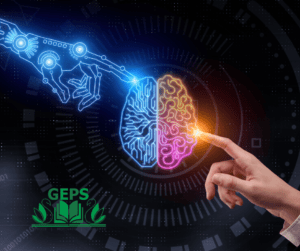
Revolutionizing Education: The Transformative Role of AI in Teaching
Revolutionizing Education: The Transformative Role of AI in Teaching

Artificial Intelligence (AI) has emerged as a game-changer in various fields, and education is no exception. With its ability to process vast amounts of data, analyze patterns, and make informed decisions, AI is transforming traditional teaching methodologies and revolutionizing the learning experience. This article explores the profound impact of AI in teaching, highlighting its benefits and discussing the potential challenges and ethical considerations.
Enhanced Personalized Learning
One of the most significant contributions of AI in teaching is its ability to personalize the learning experience for each student. AI-powered adaptive learning platforms analyze students’ strengths, weaknesses, and learning styles to create customized learning paths. Through intelligent algorithms, AI can recommend appropriate learning resources, tailor instructional content, and provide real-time feedback to students, enabling them to learn at their own pace and in a way that suits their needs. This personalized approach maximizes engagement and knowledge retention, making education more effective and enjoyable.
Efficient Administrative Tasks
AI simplifies administrative tasks for educators, allowing them to focus more on teaching and student interaction. AI-powered automated systems can handle routine administrative duties such as grading, scheduling, and data analysis. AI frees up valuable time for teachers to dedicate to instructional planning, providing individualized support, and fostering a more meaningful teacher-student relationship. By automating administrative tasks, AI empowers educators to be more efficient and productive.
Intelligent Tutoring and Virtual Assistants
AI-powered intelligent tutoring systems can potentially revolutionize how students receive academic support. These systems use natural language processing and machine learning techniques to understand students’ queries, provide explanations, and offer step-by-step guidance. Intelligent tutoring systems can adapt to students’ progress, identify areas of difficulty, and offer targeted interventions to help them overcome challenges. Additionally, AI-powered virtual assistants can answer students’ questions, provide reminders, and offer real-time assistance, enhancing the learning experience both inside and outside the classroom.
Data-Driven Decision Making
AI’s data analysis capabilities enable educators to make data-driven decisions to improve teaching strategies and student outcomes. By collecting and analyzing large volumes of educational data, AI can identify patterns and trends, highlighting areas where students may need additional support or interventions. Educators can leverage this information to develop targeted interventions, adjust instructional approaches, and refine curriculum design. AI can also help identify and predict learning gaps, allowing for early intervention and personalized remediation.
Ethical Considerations and Challenges
While AI in teaching holds immense potential, addressing ethical considerations and potential challenges is crucial. Privacy concerns arise when dealing with large amounts of student data. Safeguarding student privacy and ensuring secure data handling practices must be a priority. Additionally, there is a need to prevent algorithmic bias and ensure that AI systems do not perpetuate educational inequalities. Balancing technology-driven instruction and the invaluable human connection between teachers and students is essential.
Conclusion
AI can revolutionize education by personalizing learning, streamlining administrative tasks, providing intelligent tutoring, and enabling data-driven decision-making. Embracing AI in teaching can enhance educational outcomes, improve efficiency, and unlock new possibilities for teachers and students. However, it is crucial to address ethical considerations, foster responsible implementation, and ensure that the human element remains at the core of education. By leveraging the benefits of AI while upholding human values, we can create a future where technology and education work hand in hand to empower learners and educators alike.




